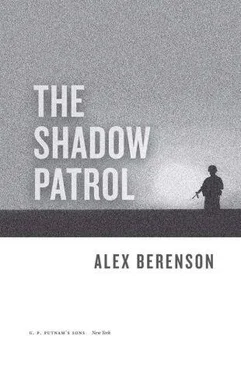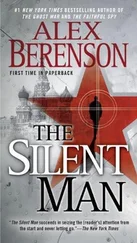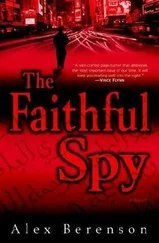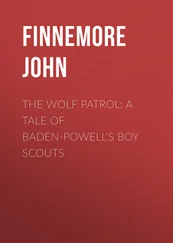Alex Berenson - The Shadow Patrol
Здесь есть возможность читать онлайн «Alex Berenson - The Shadow Patrol» весь текст электронной книги совершенно бесплатно (целиком полную версию без сокращений). В некоторых случаях можно слушать аудио, скачать через торрент в формате fb2 и присутствует краткое содержание. Жанр: Шпионский детектив, на английском языке. Описание произведения, (предисловие) а так же отзывы посетителей доступны на портале библиотеки ЛибКат.
- Название:The Shadow Patrol
- Автор:
- Жанр:
- Год:неизвестен
- ISBN:нет данных
- Рейтинг книги:3 / 5. Голосов: 1
-
Избранное:Добавить в избранное
- Отзывы:
-
Ваша оценка:
- 60
- 1
- 2
- 3
- 4
- 5
The Shadow Patrol: краткое содержание, описание и аннотация
Предлагаем к чтению аннотацию, описание, краткое содержание или предисловие (зависит от того, что написал сам автор книги «The Shadow Patrol»). Если вы не нашли необходимую информацию о книге — напишите в комментариях, мы постараемся отыскать её.
The Shadow Patrol — читать онлайн бесплатно полную книгу (весь текст) целиком
Ниже представлен текст книги, разбитый по страницам. Система сохранения места последней прочитанной страницы, позволяет с удобством читать онлайн бесплатно книгу «The Shadow Patrol», без необходимости каждый раз заново искать на чём Вы остановились. Поставьте закладку, и сможете в любой момент перейти на страницу, на которой закончили чтение.
Интервал:
Закладка:
Francesca eased off the brake, rolled deeper into the silhouette world ahead. The grape hut was directly ahead, a long, narrow building, maybe fifteen feet high. It had narrow slits for windows, like a medieval fortress. Another hut had once stood nearby, but an explosion had destroyed it years before, nearly leveling it. The first hut had partly survived. Its southern wall had been shattered and was crumbling into the mud. But its north side, which faced the valley road, was intact.
Francesca nosed the pickup through a cut in the wall near the hut. The Toyota’s tires sank into the dirt, but he downshifted and clicked on the four-wheel drive. On the southern side of the hut he found a jagged hole, maybe ten feet wide. “Home sweet home,” he said.
He edged the pickup through the hole into the hut. He cut the engine. Inside the hut, the blackness was absolute. Without his eyepiece, Francesca would have been blind. With it, he saw that the hut held dozens of simple wooden racks. Farmers used them to dry grapes into raisins. The grapes had long since disappeared, leaving the racks, and a faint sweet odor, as the only evidence of the hut’s initial purpose.
Francesca’s feet crunched over metal. He reached down, found brass casings and an 82-millimeter mortar tube. Francesca sniffed the tip of the tube. He didn’t smell gunpowder. The mortar hadn’t been used in years. He tossed it aside.
The back of the Toyota appeared to be filled with junk: old bicycles, foam bedrolls, rusted steel rods and sheets, and a couple of blankets. None of the stuff would have attracted notice at a checkpoint. Francesca and Alders pulled it all out. They slid two of the rods into holes the size of quarters that had been drilled into the Toyota’s front bumper. They laid one end of a steel sheet over the rods. The rods and sheet had been machined to fit together as easily as LEGO blocks, with an equally satisfying click. The far end of the sheet lay atop the Toyota’s cab. The sheet was seven feet wide, six feet long, just big enough for Francesca and Alders to lie side by side with the Barrett between them, its muzzle poking out of one of the hut’s narrow slits. A firing platform.
Once the platform was set, Francesca and Alders stretched the brown blankets over it and the truck. The Toyota was brown and covered with dirt and mud anyway. Inside the grape hut and under the blankets, it would be basically invisible, even during the day. Francesca climbed onto the platform. Alders reached down for the Barrett and lifted it to him, grunting at the weight of the rifle. Francesca pulled up the Barrett and snapped its legs into place. Alders handed him another camouflage net and he draped it over the Barrett’s muzzle to hide the steel.
Then Francesca settled back and slipped off his eyepiece. He put his eye to the Barrett’s infrared scope, which had far sharper resolution than his own. He found himself looking at an empty green world, the stillest of nights. No grapes had been grown in the fields around here for at least a year. Even the mice seemed to have disappeared.
He was six feet off the ground, with an open view of the road to the north, no farmhouses or high walls for a mile east or west. The position was close to perfect, concealed and with a huge field of fire. These Talib bomb-planting cells usually had no more than four guys. If they set up the way he expected, Francesca could kill them all in under a minute.
Sniper fire was confusing and terrifying, even for experienced infantry. Typical firefights happened at close range, distances no more than a football field. As a result, when an ambush began, soldiers instinctively assumed the enemy was close by. They needed several seconds to realize that they were under sniper attack. When they realized they didn’t have any way to counterattack, they typically dove and froze, trying to present as small a target as possible. But during a sniper attack, going to the ground was suicide. Francesca could put a round in a stationary target from a mile away. Unless perfect cover was available, the best solution was to scatter and regroup. Run. But by the time the Talibs figured that out, they’d be dead.
Alders handed him a bottle of water and Francesca took a long slug.
“How’s it look?”
“Real good. Whyn’t you sack out? I’ll take first watch.”
“You sure?”
“Yeah. I’ll call it in, let them know we’re here.” Their sat phones worked everywhere in Afghanistan — everywhere in the world, in fact — and they were supposed to report when they arrived and every eight to twelve hours afterward. Francesca tried to stick to the schedule, mainly because the Delta commanders got nervous otherwise. When they got nervous, they were apt to do stupid things, like put up a rescue bird. He reached for the sat, made the call.
He’d just hung up when his other phone vibrated. Afghan cellies. Amazing. He didn’t even know where the tower was. Probably somewhere on the ridge behind them. The caller identification showed a local phone. Had to be Weston.
“You in position?” Yep. Weston.
“We’re where we need to be.” Francesca didn’t appreciate this kid’s attitude. He’d considered taking Weston and Rodriguez out along with Young. In fact, he was still considering it.
“Okay, I still haven’t heard whether it will be today or tomorrow. Should know soon.”
“Call me when you do.” Francesca hung up. Put his eye to the rifle’s infrared scope. Listened to Alders snore gently on the ground below. And smiled as he watched the empty night.
26
The transmitter was two inches long, no wider around than a dime. Half the size of the eraserless pencils that miniature golfers used to count putts. Shafer had told Wells that the geeks called it an intermittent locator. As long as whatever it was attached to was moving, it reported its position every forty-five minutes to the military’s Iridium satellite network. Each transmission lasted only five milliseconds. Otherwise the bug stayed silent, offering no electronic evidence of its existence.
If the transmitter stopped moving for more than forty-five minutes, it offered one final update on its location. Then it shut down. It broadcast so infrequently that it was basically undetectable. Plus it transmitted on a nonlinear cycle. Even Shafer couldn’t explain what that meant. But he promised Wells it would enable the bug to beat every electronic countermeasure in existence.
Shafer had sent Wells three transmitters in three different colors. One gray, one brown, one black. They had no on/off switches or lights. They looked like plastic junk. He’d also included a handheld GPS that would track the transmitter. And a note. Be nice to them. You’d be surprised what they cost. Wells never remembered Shafer worrying about budgets before. Either the transmitters were seriously expensive or the man was getting strange about money in his old age.
DESPITE HIS ANGER, Stout had shown Wells where Francesca kept his pickup, a muddy parking lot near Kandahar’s giant PX. Aside from a razor-wire fence, the lot looked ordinary, full of pickups, SUVs, and Humvees. A small sign beside the front gate said “Reserved/TF86 Vehicles.”
“TF86 doesn’t exist,” Stout said. “This lot is SF only. Everybody keeps trucks in here. The Canadians and Brits, too. It’s unlocked during the day, but there are always a couple of guards. They work for Sandton. That’s a private contractor that JSOC uses a lot. They look like they’re just hanging out, fiddling with a truck, but they’ll challenge you at the gate. At night, it’s locked down and alarmed. You need a key and a code to get in. And if you look at the gate, you’ll see the surveillance cams.”
Wells looked. Two cameras, both watching the gate. He liked the setup. Hidden in plain sight. Though it didn’t help him any.
Читать дальшеИнтервал:
Закладка:
Похожие книги на «The Shadow Patrol»
Представляем Вашему вниманию похожие книги на «The Shadow Patrol» списком для выбора. Мы отобрали схожую по названию и смыслу литературу в надежде предоставить читателям больше вариантов отыскать новые, интересные, ещё непрочитанные произведения.
Обсуждение, отзывы о книге «The Shadow Patrol» и просто собственные мнения читателей. Оставьте ваши комментарии, напишите, что Вы думаете о произведении, его смысле или главных героях. Укажите что конкретно понравилось, а что нет, и почему Вы так считаете.

![Brian Jacques - [Redwall 10] - The Long Patrol](/books/128376/brian-jacques-redwall-10-the-long-patrol-thumb.webp)










